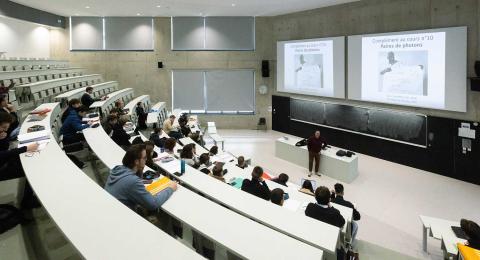Sociology
Information
Master’s Year 1
Master’s Year 2
Learning outcome targets
The common educational objectives, shared by all ten courses, are as follows:
• training in the fundamental concepts and paradigms of sociology
• learning about the range of survey methods, both qualitative and quantitative, from basic to more advanced techniques
• development of a critical and reflective approach through teaching and the writing of research dissertations in M1 and M2, as well as professional or research work placements
• practice of disciplinary, cultural, linguistic and international open-mindedness.The acquisition of these sociological skills is undertaken during 10 innovative courses aimed at research, employment or non-specific purposes. This complementary nature of what is offered is an essential characteristic of the Sociology course in that it aims to best meet the aspirations of students with diverse backgrounds. For example, three courses are offered as apprenticeships.Through its general philosophy, its common governance and its courses, the Master's degree in Sociology offers a high-level generalist education which also places strong emphasis on different areas of specialisation, such as work, employment, training, business and industrial relations; public action
- from local to supranational levels; production and implementation of law; science and technology; data science.







